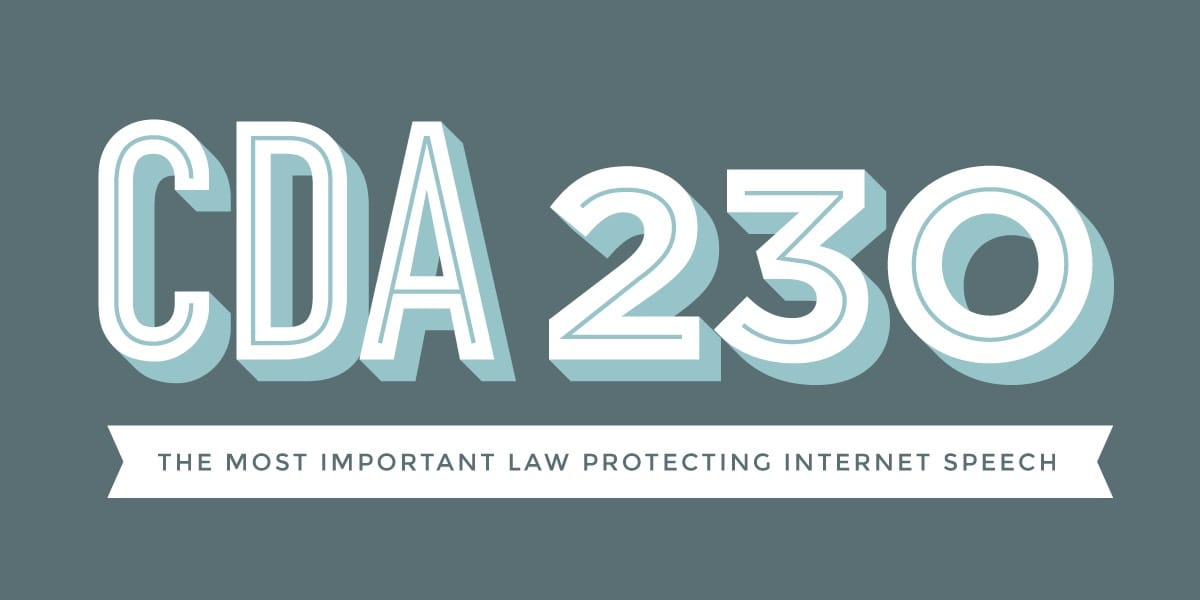Section 230 Immunity Isn’t Popular in Many Places. But at CES 2020, Techies Huddle and Applaud the Law
A group of panelists assembled at CES 2020, the world’s largest technology conference, countered the increasingly-controversial reputation that has recently enveloped Section 230 of the Communications Decency Act. The general consensus of the Wednesday panel at the Las Vegas trade show sponsored was
Adrienne Patton

A group of panelists assembled at CES 2020, the world’s largest technology conference, countered the increasingly-controversial reputation that has recently enveloped Section 230 of the Communications Decency Act.
The general consensus of the Wednesday panel at the Las Vegas trade show sponsored was that Section 230 may be in for some minor tweaking in the future, but the overall structure of the law will remain intact.
Jeff Kosseff, a law professor at United States Naval Academy, suggested that Section 230 is controversial because tech companies have become less popular with lawmakers and the public.
Section 230 offers content providers, including social media giants, immunity from liability for certain user-generated speech.
- See Broadband Breakfast’s four-part series on Section 230 from August 2019:
- Section I: The Communications Decency Act is Born
- Section II: How Section 230 Builds on and Supplements the First Amendment
- Section III: What Does the Fairness Doctrine Have to Do With the Internet?
- Section IV: As Hate Speech Proliferates Online, Critics Want to See and Control Social Media’s Algorithms
Ashkhen Kazaryan, the director of civil liberties and legal research fellow for TechFreedom, said she believed in the relationship between freedom of speech and innovation. While the majority of the world does not have Section 230 protections, certain liberties are possible because of Section 230.
Julie Samuels, executive director for Tech:NYC, said that while much of the debate around Section 230 is centered about the big tech giants, , Section 230 helps guard a healthy and robust level of competition.
According to Samuels, Section 230 protects platforms and businesses that want to experiment. It also enables businesses to expand fairly rapidly. The threat of harassment via litigation is very real, she said, and smaller companies are the ones who can’t afford to take legal chances. She called Section 230 a uniquely American law.
By contrast, large companies don’t want lawsuits, but they can afford them, said Samuels.
Lateef Mtima, a law professor at Howard University, agreed with Samuels assessment of Section 230. In her view, Section 230 makes small voices audible. According to Mtima, there was no Arab Spring, Me Too, or Black Lives Matter without Section 230.
The First Amendment protects free speech in the physical world, he stated, but Section 230 protects free speech in the internet world, he said to applause.
Kazaryan echoed Mtima’s assessment. She said that the people who connect and share this information are not the big players.
Moderator Michael Petricone of the Consumer Technology Association, the host of CES, asked panelists about the contemporary relevance of Section 230 in light of increasing demands for legislative changes to the law.
Mtima acknowledged that there are bad actors that abuse the Section 230 framework. But that is the price of democracy, he said.
Kazaryan lamented the changes to Section 230 when, in 2018, Congress changed the law with the passage of the “Stop Enabling Sex Traffickers Act” and “Allow States and Victims to Fight Online Sex Trafficking Act” (known as FOSTA-SESTA). The measure provided that Section 230 immunity does not apply against enforcement of federal or state sex trafficking laws.
Kazaryan said that sex traffickers have already moved to the dark web, making it more difficult to catch them.








Member discussion